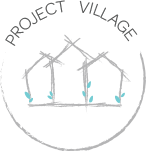We can all agree: 2020 has been a year of immeasurable stress, fear, and uncertainty.
Though we’re all in different boats, we’re navigating the same stormy waters—and coping as best we can.
In such a stressful time, it’s no wonder that our vulnerabilities bubble up more than ever. We’re constantly getting intrusive thoughts from our minds: I’m not enough. I’m not a good enough mom. I’m not doing enough to keep my job. I’m not doing enough to manage my household.
A common (and very human) reaction in the face of fear and scarcity is a shortage of self-compassion. We are our own worst critics. Our self-judgment works against us, making it hard to be our best selves and cope in a productive way to get through these stressful times.
What is self-compassion, and why is it important?
Dr. Kristin Neff, who has heavily researched mindfulness and self-compassion, defines the term in this way: “Instead of mercilessly judging and criticizing yourself for various inadequacies or shortcomings, self-compassion means you are kind and understanding when confronted with personal failings—after all, who ever said you were supposed to be perfect?”
There are three key elements of self-compassion:
- Self-kindness vs. self-judgment: I recognize my own imperfections, and I approach them with kindness instead of judgment.
- Common humanity vs. isolation: I am not alone in my suffering; this is a shared human experience.
- Mindfulness vs. over-identification: I can take a step back and observe my suffering to gain clarity about my thoughts and feelings rather than getting sucked into the emotional overwhelm.
Many people are already well-versed in self-compassion practices, perhaps without even knowing it. Others may need to explore new practices and methods of approaching their struggles. Luckily, self-compassion can be broken down into a series of skills and strategies that can be learned! Think of yourself as a “practitioner,” someone learning a skill that will help you approach this stressful time with more clarity, self-kindness, and abundance.
Tips for practicing self-compassion
On her website, Dr. Kristin Neff has provided some amazing tips and exercises to help beginners start their journey toward mindfulness and self-compassion. Some of these include:
- Exploration through writing: Write yourself a letter from the perspective of an unconditionally loving best friend. Think of someone in your life who loves you wholeheartedly, such as a grandparent, best friend, or mentor.
- Exploration through guided meditation: Take some quiet time to allow yourself to reflect on self-compassion. Several guided meditations are available on her website, including body scans and emotional awareness.
- Exploration through journaling: Get yourself an awesome blank journal and carve out some time in your day to write in it. Explore how you approach struggles in your everyday life, and think about baby steps to address those struggles more compassionately.
For many of our most pressing problems at the moment, there’s no way for us to change the magnitude of what we’re dealing with. Even so, changing the way we approach a problem can make a tremendous difference. Moving from self-judgment to self-compassion can have a transformative ripple effect on the rest of your life—so it’s well worth the time it takes to intentionally cultivate it.
For further learning, check out our Project Village Dare to Lead page. As a certified Dare to Lead Facilitator, I explore the impact of self-compassion in how we address vulnerability and shame in both work and life. You can reach out through the contact form if you’d like to learn more!

